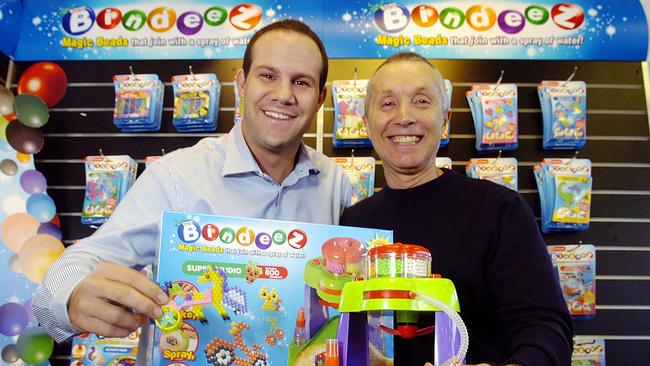Manny Stul Net Worth: The Rise, Fall, and Rebound of Australia’s Toy Tycoon

Manny Stul is more than just the CEO of a successful toy company—he’s a self-made billionaire who turned Moose Toys into a global powerhouse. As of 2025, his name remains prominent in Australian business circles, not just for his accomplishments but also for the dramatic shifts in his wealth. From fluctuating rankings on the Financial Review Rich List to his pivotal role in revamping the global toy industry, Stul’s journey is marked by resilience, vision, and strategic risk-taking.
Early Background and Entrepreneurial Spirit
Born in a refugee camp in Germany in 1949 to Polish-Jewish parents who fled the post-war chaos of Eastern Europe, Manny Stul’s early life was far from glamorous. His family migrated to Australia when he was still an infant, settling into a modest life far removed from the corporate world he would later dominate.
Manny dropped out of university and took up work in construction before launching his first venture in the 1970s—a giftware company named Skansen. That business became a public company in the early 1990s and showcased Stul’s knack for product development and retail marketing. But it was his next move that would put him on the global stage.
Acquiring Moose Toys and Scaling It Globally
In 2001, Manny Stul, along with Jacqui Tobias and Paul Solomon, acquired Moose Toys, a small Australian toy company that was still flying under the radar of international competition. Under Stul’s leadership, the company exploded in both innovation and scale. What started as a relatively niche operation transformed into one of the most disruptive forces in the global toy market.
Moose Toys became known for products like Shopkins, Little Live Pets, and Treasure X, with Shopkins in particular becoming a cultural phenomenon that generated billions in sales. The brand’s appeal across global markets, especially in the United States, positioned Moose as a dominant name in children’s retail, competing with giants like Hasbro and Mattel.
Fluctuating Net Worth and Rich List Rankings
Despite steady business growth, Manny Stul’s net worth has seen significant fluctuations, reflecting both market dynamics and private valuations. According to the Financial Review Rich List, Stul ranked:
- 51st in 2019 with an estimated net worth of $1.60 billion
- 119th in 2020, when his net worth dropped to $835 million
- 69th in 2021, recovering back to $1.60 billion
These changes are not uncommon in industries driven by product trends and consumer cycles. Toy companies, though often recession-resistant, can still experience valuation volatility due to shifting demand, retail partnerships, and competition from digital gaming platforms. Still, his ability to bounce back from a near-halving of his net worth in a single year underscores his adaptive leadership.
Global Recognition and Leadership Style
In 2016, Manny Stul became the first Australian to win the prestigious EY World Entrepreneur of the Year award. The judges cited his commitment to innovation, brand building, and the empowerment of his team. Stul’s management philosophy emphasizes agility, creative freedom, and staying close to the consumer—a formula that has clearly paid off.
He is known for staying grounded despite his wealth. Manny rarely seeks the limelight and often credits the success of Moose Toys to the combined efforts of his leadership team, especially co-owners Jacqui Tobias and Paul Solomon. His strategic reinvestment in product development, storytelling, and brand collaborations has been central to Moose’s ongoing relevance in a competitive industry.
The Business of Toys in a Digital World
Manny Stul’s business model has been remarkably adaptive in an era where physical toys compete with screens. Moose Toys has successfully blended tactile play with digital interactivity, launching app-integrated products and animated content that align with evolving consumer habits. The company’s focus on collectability and storytelling has made it a favorite among children and parents alike, sustaining momentum in a market full of short-lived fads.
With a growing international presence, Moose Toys has offices in Los Angeles, Hong Kong, and the UK, in addition to its Melbourne headquarters. As of 2025, the company remains privately held, allowing Stul and his partners to maintain strategic control without the pressures of public shareholders.
Philanthropy and Personal Legacy
Stul’s success has also translated into quiet but impactful philanthropy. While he keeps a relatively low profile compared to other billionaires, he is known to support a range of children’s welfare and education initiatives. His journey—from a war refugee to a globally recognized entrepreneur—is often cited as one of the most inspiring business stories in Australian history.
Manny’s son, Paul Solomon, has taken on an increasingly visible leadership role in the company, raising questions about succession planning and the long-term vision for Moose Toys. However, with Stul still actively involved as executive chairman, the business remains in the hands of its founding visionaries.
Final Word
Manny Stul’s net worth of $1.60 billion in 2025 reflects not just personal wealth, but the value of bold innovation and a keen understanding of what children love. From humble beginnings to the upper tiers of Australia’s richest individuals, his story illustrates how creativity and calculated risk can redefine entire industries.





